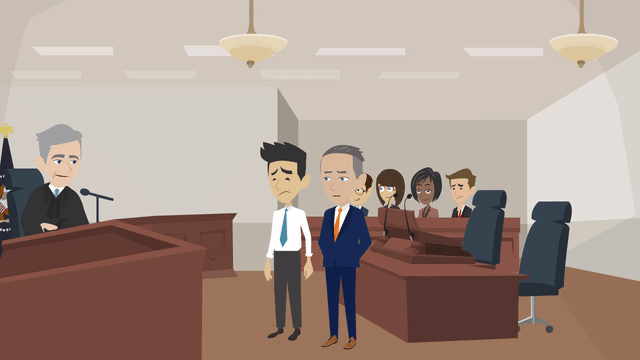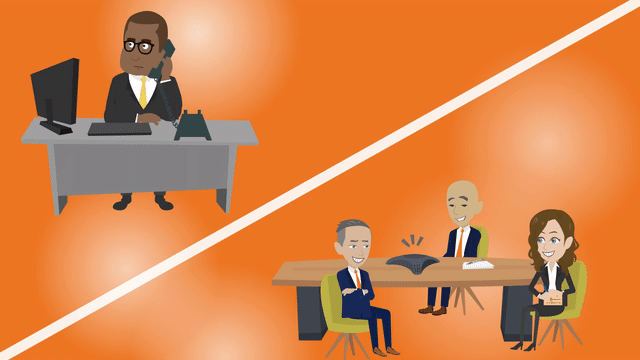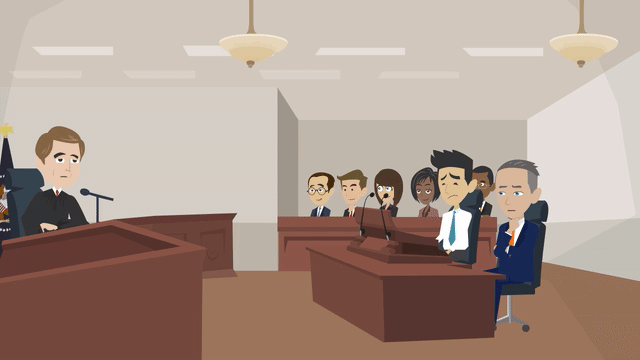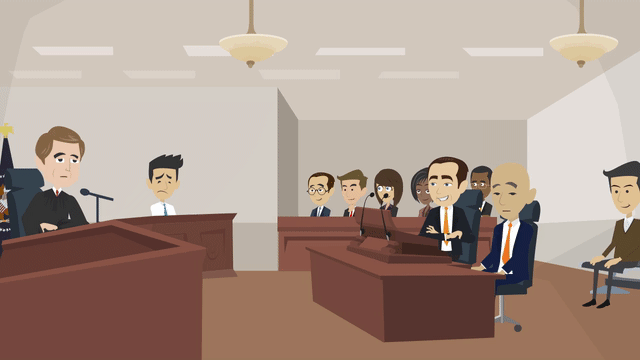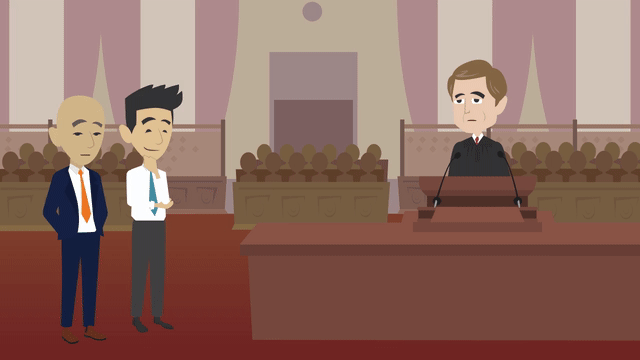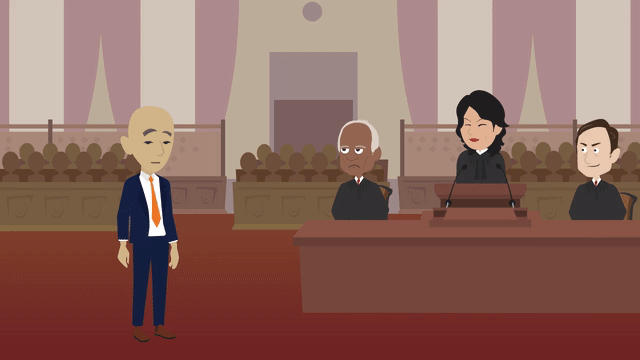A Skilled Defense Firm for Murder and Manslaughter Related Criminal Offenses
No charge is more serious than Murder – or the intentional and unlawful killing of another person. While some may interchange this with “homicide”, usually homicide tends to be an umbrella term that refers to any crime where someone dies, not just murder. For example, Vehicular Homicide and Manslaughter are types of homicide too.
There are several different types of Murder charges, most of which have an allegation that someone died as a result of an unlawful action. However, you may be surprised to learn that you can be charged with murder even if you personally don’t cause someone’s death.
Frequently Asked Questions About Murder / Manslaughter
Our criminal defense lawyers provide answers to some important questions below.
Criminally negligent homicide is a crime charged when a person causes the death of a person while acting with criminal negligence. There are many instances when an individual can be charged with this type of offense including when a death is caused to another person by:
- speeding and driving dangerously;
- using drugs and operating a vehicle;
- driving drunk and operating a vehicle;
- discharging a firearm under circumstances that reveal a gross deviation from the standard of care of a reasonable person;
- failing to seek medical care for a person who needs it.
If you or someone you care about is charged with criminally negligent homicide, it is important to retain a criminal lawyer who handles criminally negligent homicide cases. Your criminal lawyer should review all of the facts and circumstances of the case, understand the law as applied to the facts of your case, and guide you to understand the risks and benefits of a trial in your criminal case.
A person is guilty of criminally negligent homicide when, with criminal negligence, he causes the death of another person.
Criminal negligence occurs when a person engages in conduct that is so serious that it creates or contributes to a substantial and unjustifiable risk that a death will occur. Criminal negligence also requires that a person fail to perceive a risk, and when that failure to perceive the risk is a gross deviation from how a reasonable person would act in a situation.
Criminally negligent homicide is a class E felony. It is punishable by up to 4 years in state prison, up to 5 years of probation or a combination of jail and probation. You may also be fined up to $5000 and be required to pay a surcharge and crime victim fee of up to $325 or restitution in an amount to be determined by the court.
Restitution is an amount of money a court will order a defendant to pay to a victim of a crime. A New York criminal court may only order payment for the out of pocket losses suffered by the victim of the crime. In criminal court, the amount of restitution cannot include sums for pain and suffering or liquidated damages and can be no greater than the sum necessary to compensate the victim for actual out of pocket losses. However, a civil case may also be brought against someone either at the same time as the criminal case, or even after it is completed. So, while the criminal court cannot order damages for pain and suffering, a civil court may do so, and it is important to consider this possibility and to seek advice from your lawyer about how to handle a potential lawsuit against you.
Maybe. Courts have held that driving at least 90 MPH in a 55 MPH zone, in addition to other factors, and causing the death of another person are sufficient to support a conviction of criminally negligent homicide. However, proof of speed alone will not support a finding of criminal negligence. It is important to talk with a lawyer who handles criminally negligent homicide cases to determine whether, under all the circumstances, your conduct rises to the level of criminal negligence.
Maybe. If you owe a duty of care to a person, then you are required to act without criminal negligence. A duty of care may be imposed in many ways including a familial relationship like caring for a child, or employment like a lifeguard. It can also be imposed if you accept a duty. In other words, if you choose to try and aid or help someone, you must act in a way that is not criminally negligent.
A person acts with criminal negligence when that person engages in blameworthy conduct so serious that it creates or contributes to a substantial and unjustifiable risk that another person’s death will occur, and when he or she fails to perceive that risk, and when the risk is of such nature and degree that failure to perceive it constitutes a gross deviation from the standard of care that a reasonable person would observe in the situation. Criminal negligence is not the same type of negligence as in a civil lawsuit that seeks money damages. The carelessness required for criminal negligence is appreciably more serious; it must be such that its seriousness would be apparent to anyone who shares the community’s general sense of right and wrong.
A person is guilty of aggravated criminally negligent homicide when, with criminal negligence, he or she causes the death of a police officer or peace officer where such officer was in the course of performing his or her official duties and the defendant knew or reasonably should have known that such victim was a police officer or peace officer.
Aggravated criminally negligent homicide is a class C felony and is punishable by up to 20 years in prison. Although a class C felony is typically punishable by up to 15 years in jail, if convicted of this offense, the maximum prison sentence is increased to 20 years. If convicted you may be ordered to pay a fine of up to $5000, a surcharge and crime victim fee of up to $325 or restitution in an amount to be determined by the court.
Murder is a class A-1 felony, the most serious crime in New York. There are 5 types of Murder in the Second Degree:
- Intentional and unlawful killing of another person. NY Penal Law §125.25(1).
- Depraved Indifference Murder, NY Penal Law §125.25(2). This is where you are acting recklessly, not intentionally, but with such a depraved indifference towards human life, and your conduct results in someone dying.
- Felony Murder, NY Penal Law § 125.25(3). This is where in the furtherance of a specified crime or immediate flight from the crimes/attempted crimes of robbery, burglary, kidnapping, rape in the first degree, aggravated sexual abuse, escape in the first or second degrees, another person dies who is not involved in the crime. (see below for a detailed analysis of Felony Murder).
- Depraved Indifference Murder of a Child, NY Penal Law §125.25(4). Similar to the allegations in Depraved Indifference Murder, NY Penal Law §125.25(2), this crime adds the additional component that you must be 18 or older, and the victim was 10 or younger.
- Homicide during a Sex Offense, NY Penal Law §125.25(5). This is intentionally causing the death of someone under 14 years old, during the commission of a sex crime.
While a few of the above are rare Murder in the 2nd degree charges, the one that is charged most often is Felony Murder.
Felony Murder occurs when committing a felony, attempting to commit a felony, or while running away from just committing one, someone dies.
It’s worth noting that a felony murder charge will only result if the person who dies was not a participant in the felony, meaning the person who died was not a defendant or a co-defendant. Also, the person who causes the death must be a participant in the felony. As an example, if 3 people decide to break into a house to steal something, and one of those 3 kills someone who lives in the house, all 3 of the people who participated in this crime will get charged with Felony Murder. Even a getaway driver who never entered the house and never hurt anyone will still be charged with murder.
Not every felony counts as a basis for a Felony Murder charge. You can be charged with felony murder only if a death occurs during the commission of one of the following crimes:
- Burglary
- Robbery
- Arson
- Kidnapping
- Escape
- Rape
- Aggravated Sex Abuse
In New York State Court, there are various types of Manslaughter charges. Manslaughter is less serious than murder, but still very serious. The main difference between Manslaughter and Murder is the intent of the accused at the commission of the crime.
Aggravated Murder involves special cases where the person who died has some special status as defined by the law. All of these are found under NY Penal Law §125.26.
- Killing of the following people who have special status would result in an aggravated murder charge:
- Police officer;
- Court officer;
- Parole officer;
- Probation officer;
- Employee of the Office of Children & Family Services;
- Corrections officer.
- Killing a firefighter, EMT, ambulance driver, paramedic, physician, or nurse, engaged in their duties.
- Acting in an especially cruel, or torturing, way to someone 13 or younger which results in their death.
A person can be charged with Manslaughter in the 1st Degree, in violation of NY Penal Law section 125.20 if the defendant commits one of the following acts:
- The defendant intends to cause serious physical injury to a person but instead causes that person or another person to die;
- The defendant intends to cause the death of another person and causes the death, but it occurs when the defendant was under the influence of extreme emotional disturbance. Therefore, instead of being charged with Murder (link) the defendant is charged with Manslaughter.
- The defendant is over 18 years old and intends to cause injury to someone less than 11 years old, but in doing so the defendant’s conduct creates a grave risk of serious physical injury to the child and the child ultimately dies.
There are over 20 different types of Murder in the First Degree. These are all listed under various subdivisions of New York Penal Law §125.27.
The crime of Murder in the 1st Degree can be grouped as follows:
- Many of the same individuals listed in Aggravated Murder will also result in a Murder in the 1st degree charge.
- Killing a witness or family member of a witness either to stop them from testifying or as retribution for doing so.
- Hiring a contract killer or “hitman”.
- Intentionally killing someone while fleeing from a different attempted murder.
- Furthering terrorism with an intentional killing.
- Killing 2 or more people during the same transaction.
Manslaughter in the 1st Degree is a class B felony. If a person is convicted of this offense, the person faces a mandatory prison sentence between 5 and 25 years, post release supervision of between 2 ½ years and 5 years, and a fine of up to $5000.
Murder charges are the most serious felonies under New York Law, though the sentences for them may vary.
The following are the penalties for Murder, keeping in mind that certain mandatory sentencing may be altered depending on which of the following subdivisions a person has been convicted of, or what the person’s criminal history may be.
- A minimum of up to 15 years to Life, and a maximum of 25 years to Life.
- This means you serve a designated sentence anywhere between 15 years and 25 years in a New York State Prison (Department of Corrections and Community Supervision) at which point you will become eligible for parole. If you are released before the end of your life, you will always be on parole.
- Aggravated Murder increases these ranges from 20 years to Life, up to 40 years to Life.
- Life without the possibility of parole.
- Attempted Murder in the Second degree does not carry a life sentence. Instead, it has penalties between 5 and 25 years, followed by 2 ½ to 5 years of post-release supervision.
There may also be orders of protection and thousands of dollars in fines and restitution.
A person can be charged with manslaughter in the 2nd degree, in violation of NY penal law section 125.15 if the defendant commits one of the following acts:
- He recklessly causes the death of another person. This means that the defendant engages in conduct which creates or contributes to a substantial and unjustifiable risk that another person’s death will occur.
- He intentionally causes or aids another to commit suicide.
Manslaughter in the 2nd degree is a class C felony. If a person is convicted of this offense, the person faces up to 15 years in a state correctional facility. In the alternative, the defendant may be sentenced to maximum period of probation of up to 5 years. The defendant also faces a fine of up to $5000.
No. In 2004 the highest court in New York State, the New York State Court of Appeals, found that the death penalty statute was unconstitutional, not the death penalty itself. However, thus far, the legislature has not passed a new death penalty law. The last major attempt to do so was in 2008.
A person can be charged with aggravated manslaughter in the 1st degree, in violation of NY penal law section 125.22 if the defendant commits one of the following acts:
- with intent to cause serious physical injury to a police officer or peace officer he or she causes the death of such officer or another police officer or peace officer.
- with intent to cause the death of a police officer or peace officer, he or she causes the death of such officer or another police officer or peace officer but where the defendant was under the influence of extreme emotional disturbance. Therefore, instead of being charged with murder (link) the defendant is charged with Manslaughter.
Aggravated Manslaughter in the 1st degree is a class B felony. If a person is convicted of this offense, the person faces a mandatory prison sentence between 10 and 30 years, post release supervision of between 2 ½ years and 5 years, and a fine of up to $5000.
A person can be charged with aggravated manslaughter in the 2nd degree, in violation of NY penal law section 125.21 if the defendant recklessly causes the death of a police officer or peace officer.
Aggravated Manslaughter in the 2nd degree is a class C felony. If a person is convicted of this offense, the person faces a mandatory sentence of between 7 and 20 years, post release supervision of between 2 ½ years and 5 years, and a fine of up to $5000.
A person can be charged with vehicular manslaughter in the 1st degree, in violation of N.Y. penal law section 125.13 if the defendant commits vehicular manslaughter in the 2nd degree as defined below and has one of the following aggravating factors:
- a blood alcohol content of.18 or higher.
- while their driver’s license is suspended or revoked because of a prior alcohol or drug related driving offense or a refusal to submit to a chemical test.
- has previously been convicted of DWAI, DWI or Driving while ability impaired by drugs within the preceding ten years;
- causes the death of more than 1 person.
- a prior manslaughter conviction or a prior conviction of vehicular assault (link to page)
- commits such crime while operating a motor vehicle while a child who is fifteen years of age or less is a passenger in such motor vehicle and causes the death of such child.
Vehicular Manslaughter in the 1st degree is a class C felony. If a person is convicted of this offense, the person faces up to 15 years in a state correctional facility. In the alternative, the defendant may be sentenced to maximum period of probation of up to 5 years. The defendant also faces a fine of up to $5000.
A person can be charged with vehicular manslaughter in the 2nd degree, in violation of NY penal law section 125.12 if the defendant commits one of the following acts:
- they operate a motor vehicle or a boat while intoxicated by alcohol and/or impaired by drugs and causes the death of a person.
- they operate a motor vehicle with a gross vehicle weight rating of more than eighteen thousand pounds which contains flammable gas, radioactive materials or explosives while impaired or intoxicated by alcohol and/or drugs and causes the death of another person.
- they operate a snowmobile or an all-terrain vehicle while intoxicated by alcohol and/or impaired by drugs causes the death of another person.
Vehicular Manslaughter in the 2nd degree is a class D felony. If a person is convicted of this offense, the person faces an indeterminate sentence up to 7 years in a state correctional facility. In the alternative, the defendant may be sentenced to maximum period of probation of up to 5 years. The defendant also faces a fine of up to $5000.
Timeline of a Criminal Defense Case
- Whether you just made a big mistake, or are being falsely accused, this can be a very emotional and important time in a case
- It is very important that you remain silent and not answer any questions about the case without a lawyer present
- Contact a criminal defense attorney as soon as possible
- Confirm the lawyer is an experienced criminal defense lawyer
- Meet with the lawyer who will help you understand the process of a criminal case
- If you have been arrested, critical proceedings and time frames begin immediately
- You will appear before a judge who will determine if you will be incarcerated, released on bail or supervision, or released without conditions
- If you are charged with a felony in a town, village or city court, the prosecuting agency will have six months from the date of your arrest to determine whether to present your case to a grand jury to seek an indictment or return your case to a lower court to be handled as a misdemeanor
- Discovery is the exchange of information between the governmental agency prosecuting you, you, and your attorney
- In New York State this process begins shortly after your appearance in court
- You can expect exchange of the following if it exists in your case:
- Police Reports
- Investigative Notes
- Videos / Body Camera Footage / Dash Camera Footage
- Forensic Reports
- Photographs
- Exculpatory Material (Brady)
- Impeachment Material
- You and your attorney may also be engaged in information gathering that includes:
- Freedom of Information Law (FOIL) Requests/Responses
- Additional Witness Interviews
- Expert Evaluations / Disclosures
- Motions are written applications to the court to request any of the following:
- Preclude Evidence
- Suppress Evidence
- Seek a Ruling on a Constitutional Rights Violation
- Seek Outright Dismissal of One or More Charges Based on Legal/Factual Matters
- Request Hearings
- A plea bargain is an offer from the prosecuting attorney to resolve your case
- Whether to plead guilty or not is always a choice you get to make, not your attorney
- Your attorney will meet with you, discuss the facts and the law of your case, and offer advice. A plea offer takes into consideration your charges as well as:
- Prior criminal history if any
- Life experiences
- Evidentiary Problems
- Post-Incident Actions
- Mental Health Counseling
- Substance Abuse Treatment
- Anger Management Treatment
- If you choose not to accept a plea bargain and are heading to trial, there are likely to be hearings to consider the following:
- Preclusion/Suppression of Evidence
- Admissibility of Evidence
- What Prior Criminal History/Bad Acts May Be Introduced by the Prosecutor if You Testify on Your Own Behalf
- During a hearing, there is no jury, and the judge will make factual and legal determinations regarding what evidence will be allowed at trial.
- You have the right to a trial by a fair and impartial jury or by the judge who will act as both judge and jury
- At a trial, the prosecution has the burden to prove your guilt beyond a reasonable doubt
- The judge or jury will listen to the evidence presented and the arguments by the lawyers, apply the facts to the law, and render a verdict of not guilty or guilty
- A Verdict must be unanimous
- If you are convicted at trial, or if you entered a plea bargain, there will be a sentencing date where your punishment will be imposed by the judge
- If you previously entered a plea bargain, the judge will likely impose the agreed upon sentence at that time
- In the event you are convicted, you have the right to appeal
- This is true whether you plead guilty or are convicted after trial
- However, by accepting a plea bargain, you may have waived some of your appellate rights
- It is important that your attorney file a notice of appeal on your behalf and that you discuss the appeal process with your lawyer
LaMarche Safranko Law Testimonials
“No one likes to be in a bad situation, but if you need a lawyer George is your man. Not only does he point you in the right direction he offers good advice for your future. As much as we bring him business he does not encourage that next time anticipation….
“I wanted to take this opportunity to thank you for your excellent representation on my recent matter. I have worked with lawyers, and in law firms much of my professional life, but I have never encountered the rare mix of skill, integrity and humanity in one individual—you….
“Dear Andy,
Thank you so much for everything you have done for our son over the last three years. This has been a very challenging time for our family and the knowledge that our son has an attorney as capable and amazing as you are has given us peace of mind!
“Dear George, Andy and Staff,
Thank you all for your kindness and all your help in getting back to my wellbeing and life. I could not have done it without you all. Everything is going so well again. I recommend you highly. Thanks Again!”
“I wanted to express my deepest appreciation to Mr. Andrew Safranko for the exceptional job he did in regards to my legal representation. Mr. Safranko displayed the utmost in professionalism and discretion during the entire court process, and took the time to explain each and every step….
“The arrest of my husband in 2008 was an extremely difficult and emotional time for our family. The arrest turned our lives upside down. It was sudden and unexpected and had tragic emotional as well as financial consequences. I had no idea what to do under the circumstances….
“The staff at LaMarche Safranko Law took care of whatever I needed, it was just fabulous. It was top shelf, if I called, I got George. If he was in a meeting, they left him a message. He called me right back after the meeting. Everybody was very courteous and very nice there. If I left a voicemail, everybody got back to me quickly. The level of service was very, very good and I would Highly recommend them.”
“I cannot thank George E. LaMarche lll and his team for the excellent legal work they provided for my son, and in extension, our entire family. His experience, knowledge of the law, networking ability and communication is second to none. In our case, our son was wrongly accused by a small town police officer and charged with 5 tickets…
“I am an attorney who found himself in the middle of a serious, personal legal matter that compromised not only my personal life but my professional life as well. I immediately contacted Andrew (Andy) Safranko, Esq. Andy worked tirelessly and extremely hard to bring my legal situation to a very favorable resolution. In so doing, Andy not only saved certain aspects of my personal and professional life…
“My family and I cannot thank George and his staff enough for all of the support and guidance they have given us over the past six months. Anyone who has ever suffered a personal injury knows how difficult they are to overcome, but I’m glad we had such an intelligent and hardworking attorney on our side so I could focus on my recovery rather than on the details of the case….
“I can honestly say that the best decision I’ve ever made was retaining George LaMarche as my attorney. I was in a situation where everything wasat risk; my career, livelihood, and the ability to provide for my family. In desperation, I contacted over a dozen attorneys. The majority of the lawyers I spoke with promised results without seeing paperwork or knowing valuable facts….
“Dear Mr. Safranko,
Thank You so much for answering my question, and so expediently!
The dedication, respect, and consideration with which you treat your clients, current and past, is remarkable. It is why I reached out to you when searching in my time of need, and why I would highly recommend…
“Dear Andrew and George,
I cannot thank you enough for your hard work, diligence, and selfless manner that you put towards my legal difficulties in Colonie. From the first moment I met you, you helped reassure me that things were going to turn out in a more favorable manner than I originally thought. Clearly, the final result of my court case displays the quality of time and work that you put into this….
“Throughout the attorney client relationship regarding my personal injury lawsuit, George and his staff continually exhibited tremendous amounts of legal knowledge, skill, and a vast amount of expert resources that ultimately resulted in a final judgment in my favor. George was there every step of the way to explain where we stood and what to expect next and there was never a need to question his professional judgment…




